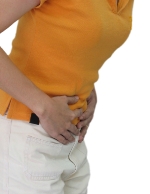IBS Treatment – Probiotics

There is good scientific evidence that probiotics help relieve some of the symptoms of irritable bowel syndrome (IBS). For example, evidence from randomized controlled trials indicate that Lactobacillus planatarum ingestion resulted in decreased abdominal pain and flatulence in those with IBS.
Probiotics are supplements that are made up of live strains of good bacteria that are found normally in the body. There is growing awareness that the microflora make-up of the human body affects the overall health and risks for subsequent diseases. IBS symptoms are thought to come from the imbalance of the bacteria in the gut. A balance of the microflora to normal conditions might reduce symptoms in those who suffer from IBS. Probiotics promote health by its ability to improve the balance of good bacteria in the gut.
When ingested, probiotics are able to survive the acidic environment of the stomach and the alkaline environment of the small intestine. Probiotics have many functions, among them are 1) introducing good bacteria to the body, which crowd-out and reduce the growth of dangerous bacteria; 2) helping in the absorption of vitamins and nutrients in the gut; 3) stimulating the immune system of the gut without inflammation; and 4) altering the motility of the gut.
1) Introducing good bacteria: With introduction to the body, probiotics multiply and compete with harmful bacteria for nutrients. Also probiotics may produce materials that stop the growth of harmful organisms in the gut by secreting bacterioins, which inhibit harmful bacteria.
2) Increased absorption of vitamins and nutrients: Probiotics enhance the digestion and absorption of proteins, fats, calcium, and phosphorus.
3) Stimulation of the immune system: Probiotics help to stimulate the immune system in response to disease-causing bacteria, viruses, or fungi. They also decrease autoimmune and inflammatory responses (where the body is fighting itself).
4) Alter gut motility: Probiotcs have been shown to increase the motility of the gut and shorten the time of gut emptying.
Probiotics come in different forms, including powders, capsules, tablets, beverages, and can be found in certain foods like yogurt, tempeh (fermented soy beans), and raw milk. They usually consist of live strains of the different species of Lactobacillus, Bifidobacterium, or Streptococcus. Because of the many different types of products and many ways to take them, there are no standard doses for probiotics. They have been generally regarded as safe to use, even long term, and have no serious side effects.
References:
Douglas LC, Sanders ME. Probiotics and prebiotics in dietetics practice. J Am Diet Assoc. Mar 2008;108(3):510-521.
Natural Standard Research Collaboration. Probiotics. www.naturalstandard.com. Accessed June 20, 2008.
